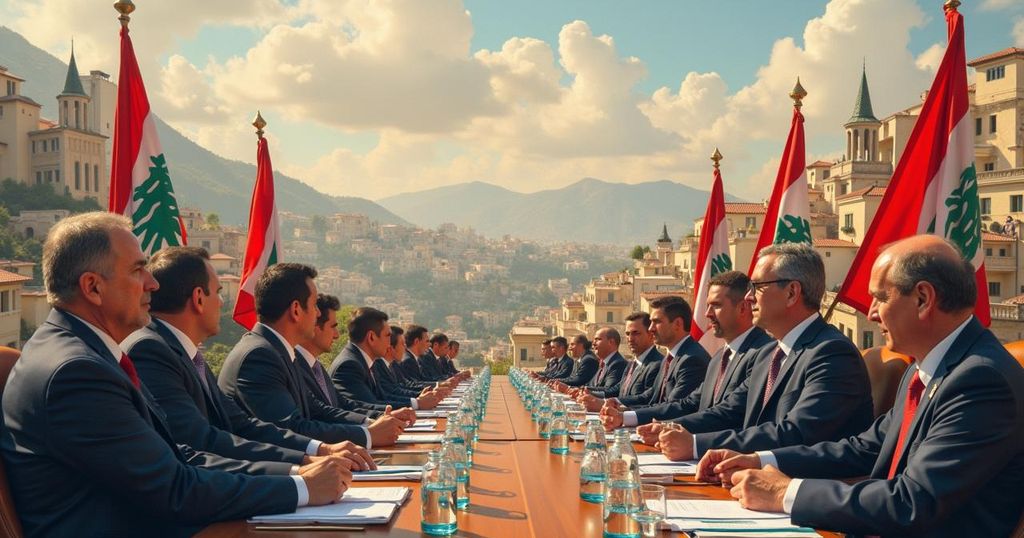U.S. Sees Opportunity to Resolve Lebanon’s Political Deadlock Amid Rising Tensions
The United States aims to leverage new developments in Lebanon to revitalize efforts toward resolving the political deadlock marked by a two-year presidential vacancy. Secretary of State Antony Blinken has engaged in discussions with international partners about the necessity of electing a new president to stabilize the country amid pervasive economic challenges and escalating tensions involving Hezbollah. Although opinions vary on the feasibility of reducing Hezbollah’s influence, there is a concerted effort to promote Lebanese sovereignty and governance.
In light of escalating tensions in Lebanon, particularly due to recent military operations that undermined Hezbollah’s leadership, U.S. Secretary of State Antony Blinken has initiated discussions with key international counterparts including those from Saudi Arabia, Qatar, and France. The aim of these conversations is to create conditions conducive to resolving the political impasse in Lebanon, notably through the election of a new president, which may facilitate a reduction in hostilities in the region. Mr. Blinken emphasized the significance of establishing an authoritative state in Lebanon, urging that the Lebanese people must determine their own future without foreign interference. Notably, Lebanon has suffered from a two-year presidential vacuum following the conclusion of former President Michel Aoun’s term. Hezbollah’s longstanding influence in Lebanese politics and its backing of Sleiman Frangieh for the presidency has hindered progress, despite competing factions proposing alternative candidates, including army commander General Joseph Aoun, who is perceived as more aligned with Western interests. As political gridlock persists, three-quarters of Lebanon’s citizens face dire economic challenges, exacerbating the urgency for political reform. U.S. officials are cautiously optimistic regarding potential movement towards easing Lebanon’s political struggles, owing to Hezbollah’s recent setbacks. Discussions at an upcoming international conference on Lebanon are anticipated to further these objectives, focusing on the necessity of adhering to United Nations Security Council Resolutions that call for enhanced stability along the Israel-Lebanon border and the exclusive presence of the Lebanese army and UN peacekeepers in contentious areas. The aim remains to restore functional governance and secure the welfare of the Lebanese populace from ongoing internal and external pressures.
Lebanon has been deeply affected by a prolonged political stalemate, primarily due to sectarian divisions and the entrenched power of Hezbollah, which is both a political party and an armed group. Since former President Michel Aoun’s term ended in October 2022, Lebanon has faced a significant leadership vacuum, contributing to widespread economic turmoil that has left a substantial portion of the population in poverty. The international community, especially the United States, has sought ways to mediate a solution to the political deadlock, emphasizing the need for a Lebanese president to stabilize governance and mitigate crises in the region. The situation remains complex due to the interplay of local and international interests, particularly given Hezbollah’s dual role in Lebanon’s political landscape.
In conclusion, the United States identifies a critical opening for renewed efforts to resolve Lebanon’s ongoing political crisis, particularly with possibilities emerging from a shift in Hezbollah’s military position. Secretary Blinken’s diplomatic engagements highlight the urgency for Lebanon’s parliament to elect a new president and restore functional governance. While skepticism remains regarding Hezbollah’s entrenched influence, the need for coherent leadership to navigate Lebanon through its current challenges is paramount. International support focused on Lebanon’s sovereignty and political resolution continues to be of utmost importance in this volatile context.
Original Source: apnews.com




Post Comment